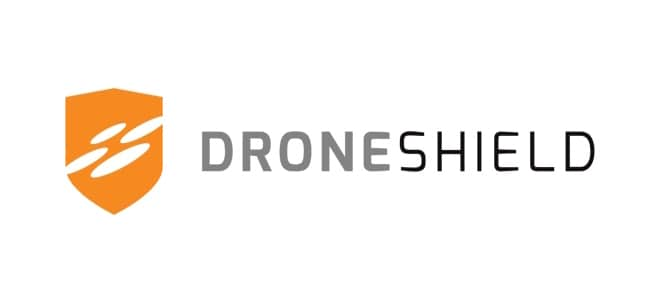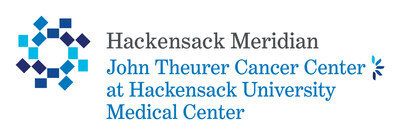Hackensack Meridian John Theurer Cancer Center Unveils Research at the 67th American Society of Hematology Annual Meeting
Advances span leukemia, lymphoma, myeloma, myeloproliferative neoplasms, sickle cell disease, and AI-enabled diagnostics
HACKENSACK, N.J., Nov. 21, 2025 /PRNewswire/ -- Investigators from Hackensack Meridian John Theurer Cancer Center (JTCC)—a leading research partner of the NCI-designated Lombardi Comprehensive Cancer Center at Georgetown University, and number one Cancer Center in New Jersey—will present 65 studies at the 67th American Society of Hematology (ASH) Annual Meeting, taking place December 6–9, 2025, in Orlando.
This represents one of JTCC's largest and most diverse scientific contributions to ASH to date, highlighting innovations in cell therapy, targeted agents, AI-driven diagnostics, stem cell transplantation, and real-world evidence across virtually every hematologic disease area.
"John Theurer Cancer Center continues to help shape the future of blood cancer care," said André Goy, MD, chair, physician-in-chief and vice president of oncology at Hackensack Meridian Health. "Our teams are redefining transplantation, advancing CAR-T science, and co-leading trials testing next-generation targeted therapies and immunotherapies. The depth and breadth of our ASH presentations underscore our mission: to bring transformational science rapidly to the clinic for patients with blood cancers and other serious blood disorders."
Highlights of JTCC Research to be presented at ASH 2025 can be found here.
Leukemia
- High event-free (EFS) and overall survival (OS) after non-total body irradiation (TBI) conditioning and allogeneic hematopoietic cell transplantation (HCT) in next-generation-sequencing minimal residual disease (NGS-MRD) negative B-acute lymphoblastic leukemia (B-ALL): Results from the EndRAD trial (PTCTC ONC1701) (ABSTRACT 25-12959)
- A phase 2 dose confirmation trial of oral ASTX030, a combination of oral azacitidine with cedazuridine among patients with myelodysplastic syndromes, chronic myelomonocytic leukemia, and acute myeloid leukemia (ABSTRACT 25-7509)
- Ziftomenib in combination with venetoclax and azacitidine in relapsed/refractory NPM1-m or KMT2A-r acute myeloid leukemia: Updated phase 1a/b safety and clinical activity results from KOMET-007 (ABSTRACT 25-3910)
- MRD-guided therapy of sonrotoclax (BGB-11417) + obinutuzumab (O) in patients with treatment-naive CLL: Initial results from an ongoing phase 1/1b study, BGB-11417-101 (ABSTRACT 25-7489)
- Real world outcomes of bispecific T-cell engagers in plasma cell leukemia (ABSTRACT 25-4651)
- Etoposide can be safely removed from induction chemotherapy without impacting survival for pediatric acute myeloid leukemia – a report from the Children's oncology group study AAML1831 (ABSTRACT 25-12270)
- Updated response and safety analyses from a Phase 1 study of ivosidenib combined with intensive chemotherapy in patients with newly diagnosed (ND) Acute Myeloid Leukemia with isocitrate dehydrogenase (IDH)1 mutation (ABSTRACT 25-421)
- AI-derived prediction of response and relapse to venetoclax plus hypomethylating agent based therapy in Acute Myeloid Leukemia (ABSTRACT 25-14588)
- TSC-101 eliminates recipient hematopoietic cells and demonstrates potential for improved relapse-free survival in patients with AML, ALL, or MDS undergoing allogeneic HCT: Updated results from the Phase 1 (ALLOHA) trial (ABSTRACT 25-12098)
- Trials in progress: Design of a registrational Phase 2 trial (ALLOHA) using an external control arm for TSC-101 for prevention of relapse post allogeneic HCT in patients with ALL, AML, or MDS (ABSTRACT 25-13827)
- Developing artificial intelligence-based transcriptomic signature for selecting patients with HOXA-MEIS1 pathway abnormalities for the treatment with menin inhibitors (ABSTRACT 25-4126)
- Evaluation of ventoclax initiation prophylaxis and monitoring outcomes at each dose level and time point in patients with chronic lymphocytic leukemia: A real-world experience (ABSTRACT 25-2129)
- Developing transcriptomic signature for IDH1 and IDH2 acute leukemia and the demonstration of high prevalence of these signatures in mutation-negative leukemia (ABSTRACT 25-4127)
- Impact of DUSP22 and TP63 rearrangements in patients with ALK-negative ALCL treated with frontline BV-CH(E)P (ABSTRACT 25-1798)
- Harnessing repressive LEF1/β-catenin complexes to overcome drug resistance in chronic lymphocytic leukemia (ABSTRACT 25-14485)
- Reducing Acute Myeloid Leukemia resistance to CAR T cell therapy by epigenetic activation of the tumor inflammasome-pyroptosis signaling (ABSTRACT 25-13458)
Lymphoma
- Epcoritamab + R-mini-CHOP results in 2-year remissions and high MRD negativity rates in elderly patients with newly diagnosed DLBCL: Results from the EPCORE NHL-2 trial (ABSTRACT 25-3828)
- Epcoritamab with rituximab + lenalidomide (R2) and epcoritamab maintenance deliver deep and durable remissions in previously untreated (1L) follicular lymphoma (FL): 3-year outcomes from epcore NHL-2 arms 6 and 7 (ABSTRACT 25-2787)
- Liquid-biopsy mutation landscape and its concordance with skin biopsies in cutaneous T-cell lymphoma (ABSTRACT 25-2858)
- ZUMA-25 preliminary analysis: A Phase 2 study of brexucabtagene autoleucel (brexu-cel) in patients (Pts) with relapsed/refractory (R/R) Burkitt lymphoma (BL), substudy C (ABSTRACT 25-2841)
- Final results of a phase 1 trial with soquelitinib (SQL), a selective interleukin-2-inducible T cell kinase (ITK) inhibitor for treatment of relapsed/refractory (R/R) T cell lymphomas (TCL) (ABSTRACT 25-2574)
- Acalabrutinib plus venetoclax and rituximab in patients with treatment-naive (TN) mantle cell lymphoma (MCL): Results from the Phase 2 TrAVeRse study (ABSTRACT 25-7289)
- Two-year update of ZUMA-2 Cohort 3: Brexucabtagene autoleucel (Brexu-cel) in patients (pts) with relapsed/refractory mantle cell lymphoma (R/R MCL) who had not received prior Bruton tyrosine kinase inhibitor (BTKi) therapy (ABSTRACT 25-2240)
- Phase 2 bellwave-003 cohort f: Updated clinical outcomes of nemtabrutinib in participants with relapsed or refractory marginal zone lymphoma (ABSTRACT 25-2322)
- A real-world analysis of safety and outcomes with first line nivolumab in combination with doxorubicin, vinblastine, and dacarbazine (NAVD) in patients with classic Hodgkin lymphoma (cHL) – a multicenter cohort study (ABSTRACT 25-2368)
- Safety and efficacy of brexucabtagene autoleucel in elderly patients with relapsed or refractory Mantle Cell Lymphoma: A retrospective, multicenter, international study (ABSTRACT 25-2034)
- Developing artificial intelligence-based transcriptomic signature for the diagnosis of dark zone lymphoma in patients without MYC gene rearrangement (ABSTRACT 25-7855)
- A multicenter real-world analysis of combined chemotherapy followed by consolidative radiation versus chemotherapy alone in the management of early-stage Hodgkin lymphoma – the HODGKIN25 study (ABSTRACT 25-1471)
- Nivolumab with doxorubicin, vinblastine, and dacarbazine (NAVD) in older adults with classic Hodgkin lymphoma: Do S1826 results hold up in the real world? (ABSTRACT 25-7840)
- First-line salvage therapies in relapsed/refractory large B-cell lymphoma after second- or third-line CD19-directed CAR T-cell therapy (ABSTRACT 25-3402)
- Multicenter, randomized Phase II study of epcoritamab for patients with large B-cell lymphomas achieving a partial response after CD19-directed CAR T-cell therapy: Trial in progress (ABSTRACT 25-15528)
- Zanubrutinib + obinutuzumab + sonrotoclax in patients with treatment-naive chronic lymphocytic leukemia/small lymphocytic lymphoma (TN CLL/SLL): Initial results from an ongoing phase 1/1b study, BGB-11417-101 (ABSTRACT 25-4113)
- Sustained remissions beyond 4 years with epcoritamab monotherapy: Long term follow-up results from the pivotal EPCORE NHL-1 trial in patients with relapsed or refractory large B-cell lymphoma (ABSTRACT 25-7543)
Multiple Myeloma
- Real-world outcomes with elranatamab in multiple myeloma: A multi-center analysis from the United States multiple myeloma immunotherapy consortium (ABSTRACT 25-2557)
- Phase 1 study of ktx-1001, a first-in-class oral MMSET/NSD2 inhibitor, demonstrates clinical activity in relapsed/refractory multiple myeloma (ABSTRACT 25-2077)
- Phase 2 registrational study of anitocabtagene autoleucel for the treatment of patients with relapsed and/or refractory multiple myeloma: Updated results from iMMagine--1 (ABSTRACT 25-4541)
- Alterations in the gut microbiome and the association of butyrate producers with progression-free survival in multiple myeloma patients undergoing autologous stem cell transplantation (ABSTRACT 25-14794)
- Talquetamab outcomes in relapsed/refractory myeloma with extramedullary and paraskeletal soft tissue plasmacytomas (ABSTRACT 25-7804)
- Safety and efficacy of talquetamab in patients with relapsed and refractory multiple myeloma (RRMM) with and without renal impairment (ABSTRACT 25-7724)
- Enhancing the safety of ciltacabtagene autoleucel in relapsed multiple myeloma (MM): Identification of potentially modifiable risk-factors associated with delayed neurotoxicity and non-relapse mortality (ABSTRACT 25-2357)
- An open-label, multi-center Phase 2 study to assess the safety and efficacy of burixafor (GPC-100) and propranolol with G-CSF for the mobilization of hematopoietic progenitor cells in patients with multiple myeloma (ABSTRACT 25-14982)
- Prospective real-world evaluation of SKY92 for risk stratification in multiple myeloma: Comparison with updated ims/IMWG criteria in the prommis study (ABSTRACT 25-8818)
- Pomalidomide salvage in T-cell engager monotherapy failures: Real-world experience with talquetamab or elranatamab with pomalidomide combinations in heavily pretreated multiple myeloma (ABSTRACT 25-10539)
- Prolonged elranatamab treatment interruption in patients with relapsed or refractory multiple myeloma (RRMM) is feasible: A retrospective analysis from MagnetisMM-3 (ABSTRACT 25-8338)
- Talquetamab, a GPRC5D×CD3 bispecific antibody, in combination with pomalidomide in patients with Relapsed/Refractory multiple myeloma: Updated safety and efficacy results from the Phase 1b monumental-2 study (ABSTRACT 25-11949)
- Prospective study of fluoroquinolone resistance colonization in patients undergoing autologous hematopoietic stem cell transplantation in the treatment of multiple myeloma (ABSTRACT 25-13625)
- Identifying high-risk profiles and adverse prognoses in relapsed/refractory multiple myeloma treated with bispecific antibodies: A real-world analysis of 943 treatment initiations (ABSTRACT 25-8860)
- Intratumoral cellular immunotherapy with autologous hyperactivated M1 SIRPα -low macrophages in non-Hodgkin lymphoma: Clinical results from a first-in-human Phase 1 study (ABSTRACT 25-8309)
- Real-world disease burden and treatment patterns among triple-class–exposed patients with relapsed/refractory multiple myeloma and extramedullary disease in the US: A retrospective analysis using Flatiron Health electronic medical records (ABSTRACT 25-9053)
- Shared immune features correspond to high-risk multiple myeloma across multiple human subtypes and murine models (ABSTRACT 25-13910)
- Real-world efficacy and safety of teclistamab in relapsed or refractory multiple myeloma: Results from 87 patients treated by the polish myeloma group (ABSTRACT 25-11305)
Myeloproliferative Neoplasms
- Preliminary data from the Phase I/II study of nuvisertib, an oral investigational selective PIM1 inhibitor, in combination with momelotinib showed clinical responses in patients with relapsed/refractory myelofibrosis (ABSTRACT 25-3882)
- Safety and efficacy results from A phase 1b study of R289, a dual irak 1/4 inhibitor, in patients with Relapsed/Refractory (R/R) lower risk myelodysplastic syndrome (LR-MDS) (ABSTRACT 25-13480)
- Nuvisertib, an oral investigational selective PIM1 kinase inhibitor, showed clinical responses strongly correlating with cytokine modulation in patients with relapsed/refractory myelofibrosis in the ongoing global phase I/II study (ABSTRACT 25-2614)
- Bone marrow microenvironment overlap between vexas and myelodysplastic syndrome demonstrated by targeted transcriptomic and artificial intelligence (ABSTRACT 25-7376)
Noncancerous Blood Disorders
- Reduced intensity haploidentical bone marrow transplantation in children with severe sickle cell disease (SCD): BMT CTN 1507 (ABSTRACT 25-11982)
- End-of-study results from the ICON3 pines trial, a phase 3, randomized trial of eltrombopag vs. standard first-line treatment for newly diagnosed immune thrombocytopenia in children (ABSTRACT 25-4324)
- The real-world safety and efficacy of BCMA-directed chimeric antigen receptor T-cell therapy in systemic AL amyloidosis (ABSTRACT 25-2732)
- Robust HbF induction and improvement of anemia and hemolysis with base editing in sickle cell disease: Safety and efficacy findings from the ongoing BEACON study (ABSTRACT 25-2531)
- Children and adolescents with sickle cell disease demonstrate improved health-related quality of life and low decisional regret after hematopoietic cell transplantation: A sickle cell transplant advocacy and research alliance (STAR) study (ABSTRACT 25-12128)
- Increased age-adjusted mortality rates from hemophagocytic lymphohistiocytosis (HLH), 2010-2023 (ABSTRACT 25-7365)
- Rapid decrease in age-adjusted mortality rates associated with ITP following eltrombopag and romiplostim approvals, but not in TMA following eculizumab approval, 1999-2023 (ABSTRACT 25-9103)
Technology
- B- and T-cell clonality using peripheral blood cell-free RNA (cfRNA) in liquid biopsy (ABSTRACT 25-7865)
- Not so exclusive: Co-mutations in JAK2, MPL and CALR define distinct hematologic and clonal signatures (ABSTRACT 25-10661)
- Temporal control of CAR expression enables thymic generation of autoreactive T cells targeting tumor-associated antigens (ABSTRACT 25-8390)
About Hackensack Meridian John Theurer Cancer Center
Hackensack Meridian John Theurer Cancer Center at Hackensack University Medical Center is recognized as New Jersey's #1 cancer center in New Jersey by U.S. News & World Report. They are also the largest and most comprehensive center dedicated to diagnosis, treatment, management, research, screening, and preventive care as well as survivorship of patients with all types of cancers. The 16 specialized divisions covering the complete spectrum of cancer care have developed a close-knit team of medical, research, nursing, and support staff with specialized expertise that translates into more advanced, focused care for all patients. Each year, more people in the New Jersey/New York metropolitan area turn to John Theurer Cancer Center for cancer care than to any other facility in New Jersey. John Theurer Cancer Center is part of the NCI-designated Lombardi Comprehensive Cancer Center at Georgetown University. Housed within a 781-bed not-for-profit teaching, tertiary care, and research hospital, John Theurer Cancer Center provides state-of-the-art technological advances, compassionate care, research innovations, medical expertise, and a full range of aftercare services that distinguish John Theurer Cancer Center from other facilities. The center expanded to Jersey Shore University Medical Center, serving patients in southern New Jersey and parts of Pennsylvania. Toms River Regional Cancer Center and Saint Joseph's Health are affiliated with the cancer center. For additional information, please visit www.jtcancercenter.org.
![]() View original content to download multimedia:https://www.prnewswire.com/news-releases/hackensack-meridian-john-theurer-cancer-center-unveils-research-at-the-67th-american-society-of-hematology-annual-meeting-302623439.html
View original content to download multimedia:https://www.prnewswire.com/news-releases/hackensack-meridian-john-theurer-cancer-center-unveils-research-at-the-67th-american-society-of-hematology-annual-meeting-302623439.html
SOURCE Hackensack Meridian John Theurer Cancer Center


